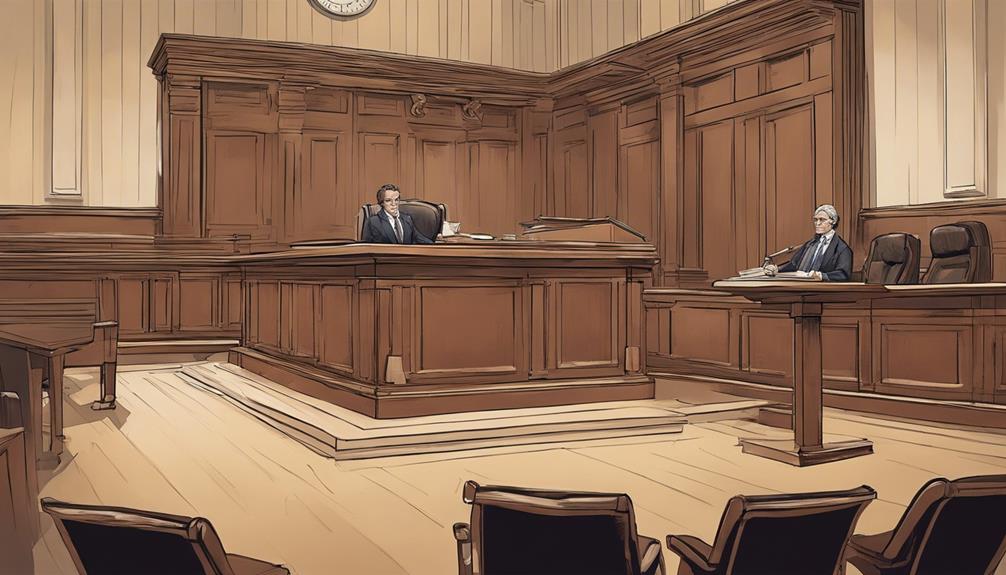Experiencing divorce in Edmonton requires a thorough understanding of the grounds and laws in place. The Divorce Act governs divorce proceedings, which may be based on separation, adultery, or cruelty. Seeking legal advice is essential for a seamless process, as it provides valuable insights on matters such as property division, child custody, and financial support. When it comes to child custody, the focus is on the child’s best interests, financial support, and overall well-being. Courts in Edmonton prioritize the welfare of children, with an emphasis on maintaining positive post-divorce relationships. By prioritizing the well-being of the family during divorce, the impact on children can be minimized. Having clear guidance is key to navigating a successful divorce in Edmonton. For more information on important considerations for a smooth transition, click here.
Key Takeaways
- Understand grounds for divorce: separation, adultery, or cruelty.
- Seek legal advice for guidance on divorce laws in Edmonton.
- Prioritize children's well-being and custody arrangements.
- Consider financial support obligations for children.
- Focus on conflict resolution for a smoother divorce process.
Understanding Divorce Laws in Edmonton
In Edmonton, divorce laws are governed by federal jurisdiction under the Divorce Act. Grounds for divorce can include separation for a year, proven adultery, or cruelty. Additionally, matters regarding parenting, guardianship, and support fall under the Family Law Act in Edmonton. When it comes to divorce-related decisions, courts prioritize the best interests of the child. Understanding these specific grounds and laws is vital for a smooth divorce process in Edmonton.
The Divorce Act outlines the legal requirements and procedures for obtaining a divorce in Edmonton. Couples seeking a divorce must meet the criteria set out by this federal legislation. Factors such as the duration of separation or instances of adultery or cruelty play a significant role in determining eligibility for divorce. Furthermore, the Family Law Act addresses important aspects like child custody, visitation rights, and financial support following a divorce. Acquainting oneself with these laws is essential for successfully handling the divorce process in Edmonton.
Marriage Termination Processes in Alberta

Managing the dissolution of marriage in Alberta involves a series of procedural steps that guarantee the legal termination of the marital union. Governed by the federal Divorce Act, divorce in Edmonton can be based on grounds such as separation, adultery, and cruelty.
To use separation as a ground for divorce, spouses must live apart for a year. Adultery, when proven, can also serve as a valid reason for divorce. Cruelty, referring to intolerable actions by a spouse, can also be grounds for divorce in Edmonton.
Importance of Legal Advice in Divorce

Legal guidance from a lawyer is essential for effectively maneuvering the complexities of divorce laws in Edmonton. When facing divorce, having a lawyer's expertise can provide valuable insights into the legal processes involved. They can offer advice on various aspects such as grounds for divorce, property division, child custody, and support.
Understanding your legal rights and obligations is critical in making informed decisions throughout the divorce proceedings. Lawyers play an important role in negotiating settlements and ensuring that all legal documents are correctly drafted and filed. Seeking legal advice early on can prevent costly mistakes and safeguard individual interests during the divorce process.
Child Custody Considerations in Divorce

Prioritizing the well-being of children involved, child custody considerations in divorce proceedings in Edmonton focus on maintaining meaningful relationships with both parents post-separation. Edmonton courts prioritize the best interests of the children, aiming to guarantee that they have the opportunity to maintain relationships with both parents after the divorce.
Both parents are legally obligated to provide financial support for their children, with child support amounts determined by factors such as income, custody arrangements, and the specific needs of the children. When negotiating custody arrangements during divorce, parents must carefully consider the well-being and needs of their children.
It's essential for parents to work together to create a custody agreement that supports the children's emotional and developmental needs while also considering each parent's ability to provide care and support. By focusing on the children's best interests and maintaining open communication, parents can navigate child custody considerations in divorce more effectively.
Prioritizing Family Well-being During Divorce

During the divorce process in Edmonton, the welfare of the family holds paramount importance. Edmonton courts prioritize the welfare of children, emphasizing the need to maintain meaningful relationships with both parents for their benefit.
Financial support for children is a legal obligation that must be addressed during divorce proceedings to guarantee their continued care. Conflict resolution between parents is vital in minimizing the impact of divorce on children, promoting a more stable environment for them to thrive in.
Positive interactions between parents post-divorce can greatly aid in the adjustment process for children, fostering a sense of security and stability during a time of substantial change.
Frequently Asked Questions
What Am I Entitled to in a Divorce in Alberta?
In Alberta, during a divorce, marital property is typically divided equally between spouses. Factors like contributions, debts, and assets influence the process. Providing accurate documentation of assets, investments, and debts is essential.
Do You Have to Be Separated for a Year to Get a Divorce in Alberta?
Yes, in Alberta, a one-year separation is a prerequisite for obtaining a divorce. This separation period is a legal mandate to initiate divorce proceedings in the province. Proof of this separation duration is typically required for divorce filings.
How Long Does It Take to Finalize a Divorce in Alberta?
Finalizing a divorce in Alberta typically takes 8 to 12 months. Factors like court backlog and cooperation between spouses can influence the timeline. Seeking legal advice can hasten the process and guarantee a smoother experience.
How Much Does Divorce Cost in Edmonton Alberta?
Divorce costs in Edmonton, Alberta vary based on complexity and cooperation levels, ranging from $5,000 to $30,000. Legal fees for a basic divorce can start at $1,500 to $3,500. Factors include legal representation, court fees, and asset division.
Conclusion
To sum up, managing the process of divorce in Edmonton can be demanding, but with the appropriate legal support and a focus on family welfare, it can be handled smoothly.
Remember, concluding a marriage is a sensitive matter that necessitates thoughtful consideration and comprehension of the laws in Alberta.
By prioritizing the requirements of all parties involved and seeking expert advice, the change can be made with respect and dignity.










